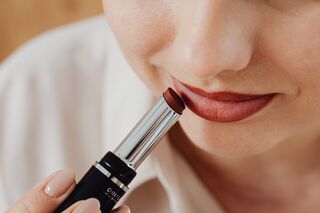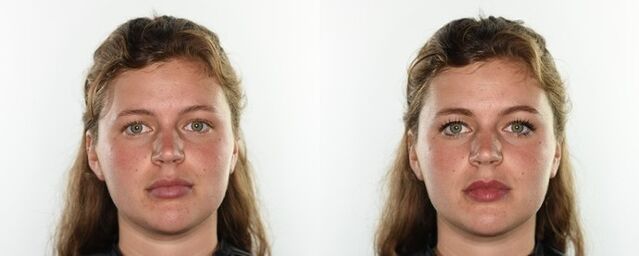Persuasion
How Makeup Changes the Way We're Perceived
Our new research demonstrates the visual effects of cosmetics.
Posted November 18, 2022 Reviewed by Tyler Woods
Key points
- The persistence and ubiquity of makeup is due, at least in part, to its perceptual potency.
- Faces wearing makeup are perceived as more attractive and they activate reward centers in the brain.
- Makeup makes facial skin look more even in part by increasing contrast between the skin and adjacent facial features.
Modern forms of makeup have been used at least since the ancient Egyptians, and pigments believed to be used on the body are among the earliest known human artifacts. The persistence and ubiquity of makeup is due, at least in part, to its perceptual potency. For instance, faces wearing makeup are perceived as more attractive and they activate reward centers in the brain.

A common purpose of makeup is to make the skin appear more even. This is the purpose of complexion-oriented makeup products, such as foundation and concealer. Using two physical measurements of skin evenness, researchers have found that the skin does, indeed, have greater physical homogeneity with makeup than without makeup. The same study also reported evidence that cosmetics influence perceived skin evenness, with the same faces rated by participants as having more even skin when presented wearing makeup compared to not.
Interestingly, the effect size of the perceptual judgment was larger than the effect sizes of the physical measurements, suggesting that there are factors affecting the perception of skin evenness that are not captured by the physical measurements of isolated skin patches.
Therefore, a new scientific article published today (on which I am a co-author) aimed to explore the possibility that makeup makes facial skin look more even in part by increasing contrast between the skin and adjacent facial features.
To test this hypothesis, we ran two studies in which participants rated how even skin appeared in faces with and without makeup. The first study used digitally-applied makeup and the second study used actual cosmetic products applied by a professional makeup artist.
Critically, the faces in the makeup condition had cosmetics applied to the lips, eyes, and eyebrows, but no products applied to the skin. Thus, the skin was physically identical in both conditions; only the facial features differed.

Whether makeup was applied digitally (Study 1) or by a professional makeup artist (Study 2), participants rated the skin as appearing more even in the condition with makeup applied to the eyebrows, eyes, and lips. These results demonstrate that cosmetics make skin appear more even not only through products like foundation and concealer that are applied directly to the skin, but also through products like lipstick and mascara that are applied to the features.
So, why does the skin appear more even when makeup is applied only to the features? We believe the appearance of spots and wrinkles may be suppressed by the increase in facial contrast from cosmetics. This study demonstrates that makeup affects skin appearance not only through the application of products to the skin, but also by modifying the visual context of the skin.
The study, “Makeup applied to facial features increases perceived skin evenness” was published today in the scientific journal Vision Research.


